Exclusive
Remote hospital’s ‘smart’ move to weather storms and power outages
Koh Phangan Hospital saved millions of Thai baht in maintenance expenses after switching to a smart hospital.
Remote hospital’s ‘smart’ move to weather storms and power outages
Koh Phangan Hospital saved millions of Thai baht in maintenance expenses after switching to a smart hospital.
Is Asia ready to put healthcare on the cloud? Here’s what an AWS executive has to say
Amazon Web Services Chief Medical Officer Rowland Illing says countries will move at different paces.
Why procurement is the biggest hurdle in green hospital goals—and how to conquer it
Procurement is amongst the 10-goal GGHH framework for hospitals to achieve net-zero by 2050.
Malaysian eyecare clinic zooms into boutique centres to elevate services
OasisEye Specialists deployed AI screening machines to remote areas where doctors are scarce.
The Medical City seeks to recover crippling number of foreign patient entry
It cut the price for executive check-ups by 15% for travellers from Guam and the Pacific.
What's so special about Pondok Indah Group Hospital getting HIMSS EMRAM level 6 validation?
It is the only hospital in Indonesia to achieve this assessment at the highest level.
OneOnco allows patients to kickstart cancer support system for $1
It is a digital-based oncology solution for those looking to begin their medical care.
Antibacterial sutures stitch the gaps in surgical site infection care
‘Plus’ sutures are reducing the risk of surgical site infections by 28%.
Asia’s healthcare tomorrow: Pivoting back to non-communicable disease
Despite NCDs accounting for 41 million deaths annually, they are still healthcare's 'blind spot', expert says.
Me & My Healthcare Provider targets HIV’s ‘Achilles heel’
The International AIDS Society and Gilead Sciences partner to promote stigma-free HIV care in Asia.
From accidental to essential — How PairX Bio revolutionises cancer immunotherapies
The startup focuses its efforts on cancer treatment by targeting shared tumour antigens.
SingHealth Duke-NUS invests in 'the seeds of the future generation'
It launched a new institute that opens doors for maternal-child care research.
Vaccination in Asia slows as it faces supply constraints
In Asia, only 24.43% of the population have been fully vaccinated.
Bumrungrad Int’l Hospital eyes providing ‘world-class holistic healthcare’
CEO Artirat Charukitpipat shares the plans and achievements the hospital has achieved under her leadership.
Taking a tech advantage on fragility fracture care
The number of hospitals operating on hip fracture that have access to a fracture liaison service has been steadily rising from 2013 to 2020.
Are Philippine hospitals ready for universal healthcare?
Labour and funding shortages are plaguing ill-prepared healthcare providers.
This is how tech startups are revolutionising Asian healthcare
A platform provides personalised in-depth consultations with just one click. Patients are always taught never to look up their symptoms online, lest they run across medical websites that will blow their conditions out of proportion. But what if patients can speak with actual doctors through an app rather than looking up their symptoms themselves? With its proprietary doctor discovery search engine, healthtech startup DocDoc seeks to help patients find high quality specialised medical care for their unique needs. Healthcare Asia sat down with Cole Sirucek, CEO and Co-Founder, DocDoc, to discover the latest developments in the region’s booming healthtech scene. 1. What is the status of Asia's Healthtech scene today in terms of funding? Who are the main movers? Today, Asia Pacific’s healthtech ecosystem is the second largest in the world, only behind the United States. In 2018 alone, the region’s industry raised a staggering US$6.3 billion in investments[1]. Within Asia, India, China and Singapore are emerging as key health technology hubs[2] as they hold a significant share of the ecosystem, with the majority of start-ups based in these countries and because they attract a significant portion of the investments. 2. What are the opportunities and challenges in the healthtech scene today faced by startups like DocDoc? Governments and companies across Asia are constantly looking for ways to innovate new solutions in order to address some of the region’s most pressing healthcare challenges including an ageing population, lack of access to relevant information, and increasing costs. For instance, Hong Kong has made a major push recently to promote itself as an InsurTech hub, with the formation of a new independent insurance authority (IIA) and having just issued its first online-only insurer under a "fast-track" system. Singapore also announced that it will invest an additional S$300 million to research and development (R&D) in technologies such as artificial intelligence (AI) and cybersecurity, as the nation continues to develop services to improve healthcare. At the same time, we are also seeing the rise of informed consumers – including in healthcare, where they seek the power to access the most up-to-date and relevant information at their fingertips, regardless of location, to help them make the right decisions. Throughout Asia, consumers in healthcare experience a dire lack of transparency and below average customer service. They waste hours trying to get a primary care consultation, in often cases, only to find out that they need to see a specialist. Then begins the daunting task of researching for the right specialist. Patients’ only choices are to rely on online doctor directories or referral from friends and family. Online doctor directories provide very little information on the background and expertise of the specialists, therefore making it remarkably challenging to distinguish between the numerous doctors under the same specialty, in the same region. Referral from friends and family are based on anecdotal evidence at best. Consumers are largely forced to choose a doctor in an information vacuum and left to face the draw of the luck. The lack of information not only causes enormous stress on patients but also leads to higher complication rates, re-admission rates, and higher costs. All these present a huge opportunity for health technology innovators. However, as key stakeholders come with widely varied interests and as businesses grow, the main challenge companies may face is losing sight of the patients’ best interests, so there needs to be a priority to keep them protected. To do this, healthcare providers and payers must move to a patient-centric model to ensure they address and meet the needs of the patients. 3. What is the role of startups in driving healthtech innovations? Across industries start-ups tend to be more agile than large corporations and hence tend to be quicker in bringing ground-breaking new technologies and business models to market. The healthtech industry is no different. To future-proof itself, the ecosystem needs to focus on how it can address and resolve healthcare gaps and challenges across markets, while striking a balance between the role of large corporations and start-ups. 4. How does DocDoc leverage on artificial intelligence (AI) to help patients? DocDoc is a virtual network of physicians and hospitals that helps patients find high quality specialised medical care for their unique needs, when they need it. With more than 23,000 doctors and 793 hospitals and clinics under contract, we have the largest doctor network in Asia, covering a variety of expertise. A key component to our offering is our doctor discovery search engine, HOPE (heuristic for outcome, price, and experience). Powered by artificial intelligence (AI), HOPE allows us to search our database of 23,000 doctors and compare them based on outcome, price, and experience at a procedure and condition level of granularity. In doing so, HOPE finds a best match between a patient's unique needs and a physician's expertise. DocDoc’s value proposition, powered by HOPE, is wholly unique in the industry. However, we realise that healthcare is personal and patients value human touch. Therefore, we combine our AI-powered doctor discovery engine with stellar customer service provided by medically trained doctor discovery consultants. When a patient contacts us, our doctor discovery consultants discuss the patient’s medical needs in detail and leverage HOPE to provide customised panels of recommended physicians. Each panel of recommended physicians is uniquely customised to suit the medical needs of the patient's condition or requested procedure. Moreover, patients are provided with a doctor discovery report which contains detailed information about the recommended physicians in a consumer-friendly and easily digestible manner. We have built and continue to build our database by spending hours with each doctor, investigating quality of care and documenting procedures and conditions where the physician excels. We also review national records to confirm credentials and discover any legal action. Our goal is to give patients access to powerful and credible information to help them find the right care at the right time, and we believe that this data will help empower them to do just that. 5. What's next for DocDoc? The healthcare industry in Asia Pacific is booming as patients demand for better customised services. We hope to bring our AI-powered doctor discovery platform to more patients across Asia to help them find the right doctor at the right time based on verified information. With our recent investment from Cyberport Macro Fund (CMF), we are one step closer to this as we will be looking to strengthen and grow our network of doctors in Hong Kong, while expanding our market presence. We will also be working with CMF to leverage the Cyberport facilities, infrastructure and its network to continue expanding our insurance footprint in Hong Kong, providing data-driven doctor discovery services to insurance policyholders.


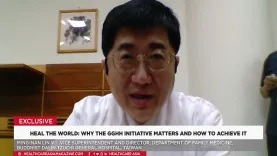
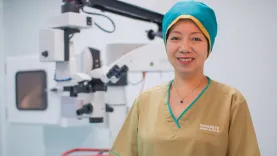



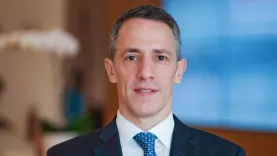
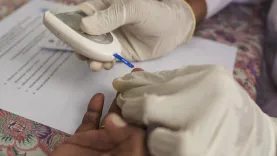







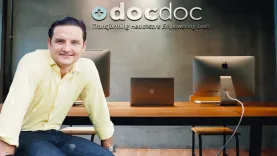

 Advertise
Advertise














